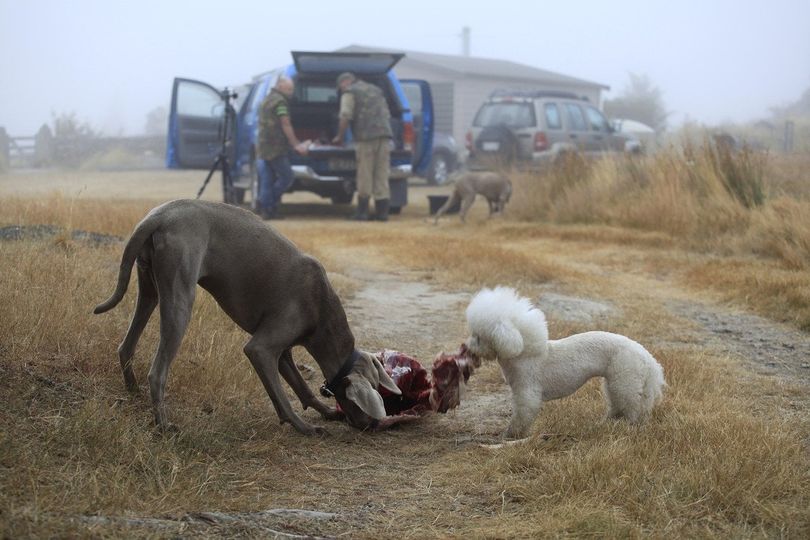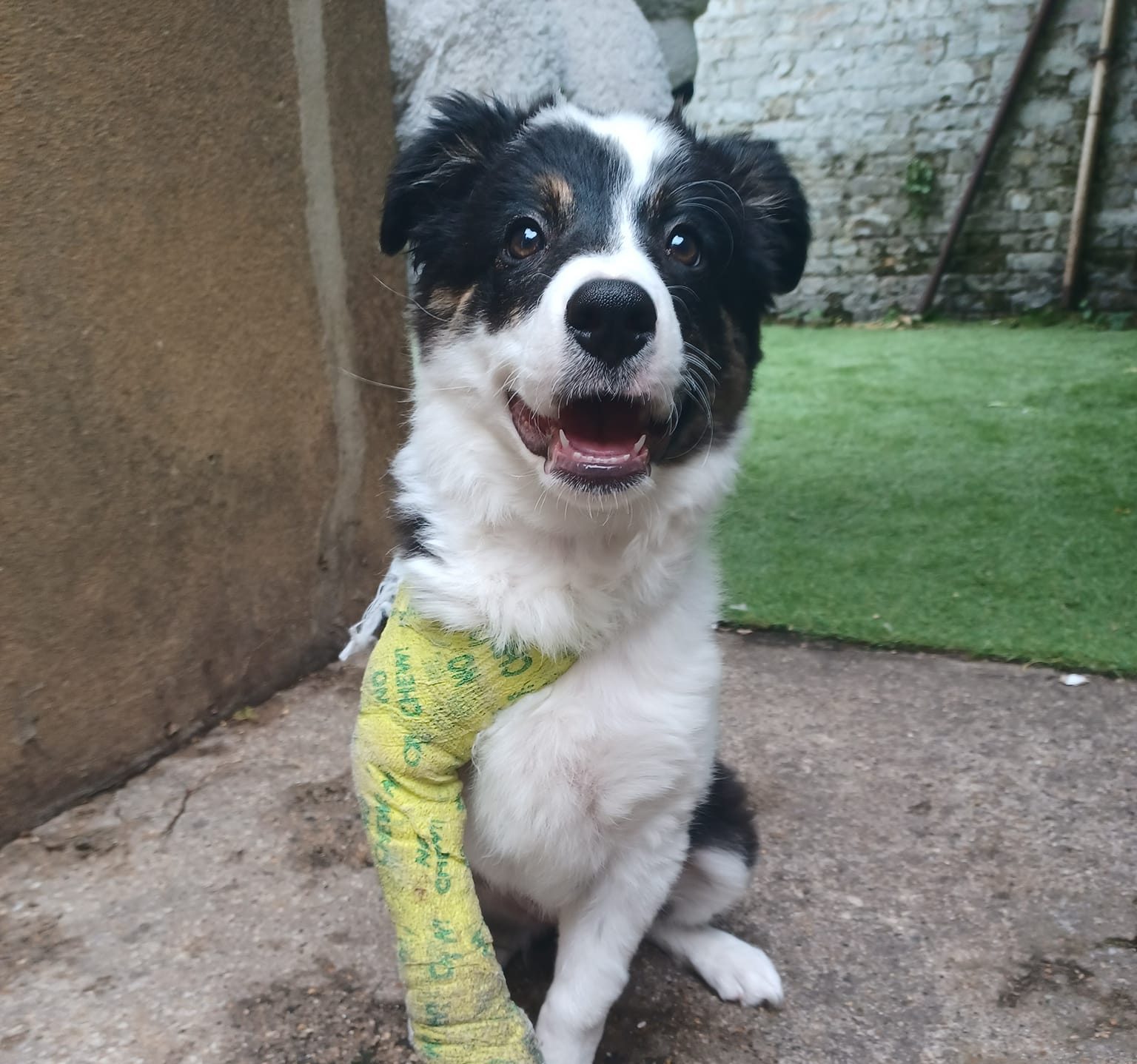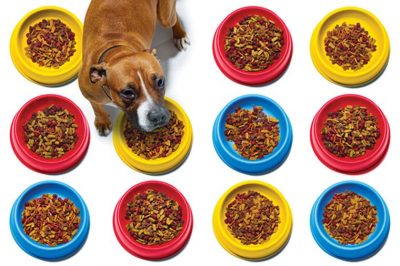Does teething cause diarrhea?

A teething puppy is a right ‘mare. Worse if they have diarrhea as well.
But are the two related?
Does teething cause diarrhea?
Teething doesn’t directly cause diarrhea, but the behaviour of our dogs while teething can cause diarrhea to occur.
So how can we prevent diarrhea, and how can we help our puppies through the gruesome teething phase?
Let’s take a look, as there are important factors to consider:
Why does teething coincide with diarrhea?
Face it, your puppy will go through a lot of ups and downs in their first year of life. Teething is inevitable. Diarrhea is to be expected. Our limits will be tested – guaranteed!
If your dog has the occasional bout of diarrhea or runny poo then don’t worry too much. Most puppies get the runs at some stage.
Usually, and unfortunately, on our prized handwoven Egyptian knock-off rug.
Persistent or excessive diarrhea is something you should be more concerned about, so more on this later.
Before we consider why diarrhea is more likely during the teething phase, let’s consider a few reasons why our puppies get diarrhea:
- Your puppy’s digestive system is developing and adapting to new foods.
- Your puppy’s immune system is developing, which makes them more prone to bouts of illness, and bouts of illness cause diarrhea.
- The food we feed them, quite often, isn’t ideal for them – do you know if the brand of puppy kibble you’re feeding is ideal for your pup as basically a meat-eating animal?
- Puppies are still learning what’s food, and what isn’t. This means they consume stuff they shouldn’t.
- Some medications and vaccines can cause vomiting and diarrhea.
With the main causes of diarrhea in puppies out of the way, lets take a look at how teething can cause diarrhea.
How can teething cause diarrhea?
Teething doesn’t directly cause diarrhea, but the changes in behaviour of our puppies can make diarrhea more likely.
The problem we face with teething puppies is their ability to hunt down, chew, and digest things they shouldn’t eat.
This can be food they’re not used to, household objects, stuff in the garden, or even from licking floors cleaned with chemicals.
Granted, this is a problem with puppies in general, but much more prevalent when they’re teething. It’s during this phase – the most challenging phase in puppyhood – when your dog will ingest anything they can chomp on.
Chair legs. Slippers. Threads of carpet. Your toenails. What else?
None of these are easy for your puppy to digest, and can easily trigger diarrhea. It’s not just diarrhea, as ingesting inappropriate items can cause discomfort, illness, or sometimes an emergency trip to the vets.
Thankfully there are easy solutions to help your puppy (and yourself) through both the teething phase and puppy phase in general.
We’ll get to those solutions shortly, but first lets address when we should take diarrhea more seriously.
Why should we be concerned about our puppies having diarrhea?
Although you shouldn’t be too concerned if your puppy has the occasional bout of diarrhea, if it’s happening excessively or continuously then treat this as a much more concerning issue.
In my experience, the food we feed our puppies can be the #1 cause of diarrhea.
This could be the result of a dietary sensitivity. Often misrepresented as “allergy” or “intolerance”, the simple fact is if you feed your puppy a kibble made of inappropriate or poor quality ingredients – wheat, cereal grains or cereal by-products, colours, preservatives to name a few – then the result isn’t an allergy, it’s a result of feeding your dog stuff they shouldn’t be eating anyway.
Have you read the ingredients of your puppy food?
What are they?
(Post them in the comments if you want my thoughts)
Some dogs, such as Pugs, Boxers, Staffies, Labs, Retrievers, and Dachshunds, seem to be more affected by dietary sensitivities, although any breed can be affected.
Prolonged or excessive diarrhea can be a sign of an underlying or developing illness.
This means you should take your puppy to your vets and have them assessed. Your vet may recommend an expensive brand of dog food, likely made of cereal grains as well, but you should definitely seek their advice.
Always consider the quality and appropriateness of the puppy food you were feeding first, when the issue occurred, as this will give you the best insight into addressing future diet-related problems with your pup.
With all the above out of the way, let’s take a look at easy solutions to help your puppy through the teething phase, and addressing issues with diarrhea…
What you should do when your puppy is teething with diarrhea?
These two problems should be tackled as separate issues, as technically they are even through they’re related.
Teething is inevitable, but there are numerous ways you can help your puppy through it. This should include giving them safe things to chew on, with my recommendations being raw meaty bones or 100% dried meat-based chews (such as jerky or bully sticks). There are other great (and cheap) options too, such as coffee wood, frozen carrots, or frozen cubes of bone broth – you can find great teething solutions here.
Tackling diarrhea when your puppy is teething should start at preventing them eating anything they shouldn’t.
This includes poor quality puppy food.
The suggestions above for teething are a great start, but you should make sure your puppy (1) doesn’t have access to anything else, and (2) you keep an eye on them as much as you possibly can.
If your puppy has a crate, this can be a very good way to keep them safe while you’re sleeping.
You must pay close attention to what you’re feeding your puppy.
We assume all pet food is safe and healthy, but if you read the reviews you’ll find this is rarely the case.
In Australia there are barely any regulations, and we don’t have nutritional standards like they do in the US with the AAFCO standard. The problem with this is pet food companies can often say what they like, sell what they like, and as a pet owner you won’t have any course of action if any pet food makes your dog sick.
That sounds bleak, but you should keep that in mind.
The last issue I was aware of which caused mass-sickness and diarrhea in Australian dogs occurred this very month, from mould in many batches of a popular and somewhat reputable brand of Australian pet food.
It’s not just manufacturing issues or “bad batches”. Most dog foods are marketed as meat-based, because dog’s are meat-eaters, right, but in reality these dog foods are mostly cereal grains or cereal by-products (filler if you will), and not as nutritious as you may think. This inappropriateness is often the cause of digestive upset.
Hopefully, with any luck, the information above about teething and diarrhea has helped?
Final thoughts and a checklist for when your teething puppy has diarrhea
If you skipped most of the above because of TLDR, then here’s a quick recap of what you can do when your puppy is teething, or worse – teething with diarrhea:
- Give your puppy appropriate items to chew – simple teething solutions here.
- Prevent your puppy having access to anything else, including cat food, household items, or anything in the garden. Vigilance is key.
- Consider the dog food you’re feeding – is it really as healthy as you think? Is it the cause of diarrhea?
- Speak with your veterinarian if you are concerned about illness or digestive issues, especially if your puppy has excessive or persistent diarrhea.






